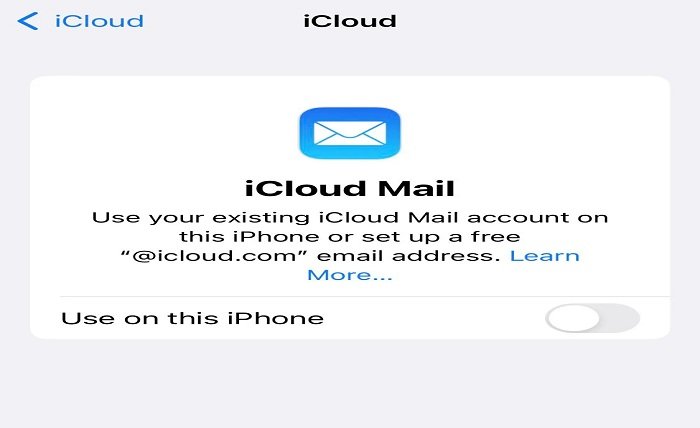Mastering iCloud Mail: Your Comprehensive Guide

iCloud Mail is Apple’s integrated email service, seamlessly connecting your devices and enhancing your digital communication. Whether you’re new to iCloud Mail or looking to optimize its features, this guide covers everything you need to know. From setting up your account to leveraging advanced security measures, iCloud Mail offers a robust platform for both personal and professional use. With its user-friendly interface and deep integration with Apple’s ecosystem, iCloud Mail ensures your emails are accessible, secure, and efficiently managed across all your devices. Dive into the world of iCloud Mail and discover how it can streamline your email experience.
What is iCloud Mail?
iCloud Mail is Apple’s proprietary email service designed to integrate seamlessly with its ecosystem. As part of the iCloud suite, iCloud Mail offers users a reliable and secure platform for managing their emails. It provides features such as automatic syncing across all Apple devices, ample storage space, and robust spam filtering. iCloud Mail is accessible via the Mail app on iOS, macOS, and through web browsers, ensuring that users can stay connected wherever they are. Additionally, iCloud Mail supports IMAP, allowing for easy integration with other email clients. This versatility makes iCloud Mail a preferred choice for millions seeking a dependable email solution.
How to Set Up iCloud Mail
Setting up iCloud Mail is a straightforward process, especially for those already within the Apple ecosystem. To begin, ensure you have an Apple ID, which is essential for accessing iCloud services. On your Apple device, navigate to Settings, tap on your Apple ID, and select iCloud. From there, toggle the Mail option to enable iCloud Mail. If you’re using a non-Apple device, you can set up iCloud Mail by visiting iCloud.com and signing in with your Apple ID. Follow the on-screen instructions to configure your email account. Once set up, your iCloud Mail will automatically sync across all your devices, providing seamless access to your emails.
Features of iCloud Mail
iCloud Mail comes packed with features that enhance the user experience and ensure efficient email management. Key features include:
- Seamless Integration: Works flawlessly with Apple’s Mail app across all devices.
- Ample Storage: Offers generous storage space, allowing you to store thousands of emails without worrying about space.
- Advanced Spam Filtering: Protects your inbox from unwanted emails with effective spam filters.
- Custom Domains: Supports custom email domains for personalized email addresses.
- Attachment Support: Easily send and receive large attachments, integrated with iCloud Drive for additional storage.
- VIP Contacts: Highlight important contacts to ensure you never miss critical emails.
These features make iCloud Mail a versatile and powerful tool for both personal and professional communication needs.
Security Features of iCloud Mail
Security is a paramount concern for iCloud Mail, ensuring that your emails and personal information are well-protected. iCloud Mail employs end-to-end encryption, safeguarding your messages from unauthorized access. Additionally, two-factor authentication (2FA) adds an extra layer of security, requiring verification before accessing your account. iCloud Mail also includes robust spam and phishing protection, automatically filtering out malicious emails. Regular security updates from Apple ensure that iCloud Mail stays resilient against emerging threats. These comprehensive security measures make iCloud Mail a trustworthy choice for secure email communication.
Managing iCloud Mail on Different Devices
iCloud Mail offers seamless management across various devices, ensuring that your emails are always synchronized and accessible. On iOS devices, the Mail app provides an intuitive interface for reading, composing, and organizing emails. On macOS, the Mail app integrates deeply with other Apple applications, enhancing productivity. For Windows users, iCloud Mail can be accessed through the web or integrated with Outlook via IMAP settings. Additionally, you can configure iCloud Mail on Android devices using third-party email clients that support IMAP. This cross-platform compatibility ensures that you can manage your iCloud Mail efficiently, no matter which device you’re using.
Tips to Optimize iCloud Mail Performance
To get the most out of iCloud Mail, consider implementing the following optimization tips:
- Organize with Folders: Create folders to categorize and manage your emails effectively.
- Use Filters: Set up rules to automatically sort incoming emails, keeping your inbox clutter-free.
- Enable Notifications: Customize notifications to stay updated on important emails without being overwhelmed.
- Regularly Clean Up: Delete unnecessary emails and attachments to maintain optimal performance.
- Utilize Search: Take advantage of the powerful search feature to quickly find specific emails.
- Integrate with Calendar: Link iCloud Mail with your Calendar app to streamline scheduling and communication.
These strategies can enhance your iCloud Mail experience, making it more efficient and tailored to your needs.
Troubleshooting Common iCloud Mail Issues
While iCloud Mail is generally reliable, users may occasionally encounter issues. Common problems include difficulty sending or receiving emails, synchronization errors, and login issues. To troubleshoot, first ensure that your device is connected to the internet and that your iCloud settings are correctly configured. Restarting your device and updating to the latest software version can often resolve these issues. If problems persist, check Apple’s System Status page to see if there are any ongoing outages. Additionally, resetting your iCloud Mail password or reconfiguring your email account settings may help. For unresolved issues, contacting Apple Support is recommended for personalized assistance.
Comparing iCloud Mail with Other Email Services
When choosing an email service, it’s essential to compare features, security, and integration capabilities. iCloud Mail stands out with its seamless integration within Apple’s ecosystem, making it ideal for users heavily invested in Apple products. Compared to Gmail, iCloud Mail offers more privacy-centric features, while Gmail may provide more extensive third-party integrations. Outlook provides robust business features, whereas iCloud Mail excels in simplicity and ease of use for personal communication. Each service has its strengths, but iCloud Mail is particularly advantageous for those seeking a secure, integrated, and user-friendly email solution within the Apple environment.
iCloud Mail Storage and Pricing
iCloud Mail offers a generous amount of storage as part of Apple’s iCloud service tiers. The free plan includes 5GB of storage, which is shared across all iCloud services, including Mail, Photos, and Drive. For users needing more space, Apple provides several paid options:
- 50GB Plan: Suitable for individual users with moderate storage needs.
- 200GB Plan: Ideal for families or users with significant storage requirements.
- 2TB Plan: Best for power users or those with extensive data storage needs.
These plans are competitively priced and can be upgraded or downgraded as needed. Additional storage ensures that you can keep all your important emails, attachments, and other data without worrying about space limitations.
Integrating iCloud Mail with Other Apple Services
One of the key advantages of iCloud Mail is its seamless integration with other Apple services, enhancing overall productivity and user experience. iCloud Mail works effortlessly with the Calendar app, allowing you to schedule events directly from your emails. Integration with Contacts ensures that your address book is always up-to-date and easily accessible. Additionally, iCloud Mail syncs with the Reminders app, enabling you to create tasks from your emails. This interconnectedness between Apple services streamlines your workflow, making it easier to manage your personal and professional life efficiently using iCloud Mail.
Future Enhancements for iCloud Mail
Apple continuously updates iCloud Mail to enhance functionality, security, and user experience. Future enhancements may include improved AI-driven email sorting, advanced customization options for the Mail app, and deeper integration with emerging Apple technologies. Apple is also likely to focus on enhancing security features to protect against evolving threats, ensuring that iCloud Mail remains a secure platform for communication. Additionally, expanding support for more third-party integrations could provide users with greater flexibility in managing their emails. These ongoing improvements ensure that iCloud Mail remains a competitive and reliable email service in the ever-evolving digital landscape.
Looking for a scary troll face PNG to spice up your horror-themed designs? This blog offers a curated collection of high-quality, transparent PNG images of creepy troll faces perfect for memes, Halloween posters, gaming graphics, and more. Whether you’re a content creator or a graphic designer, these scary troll face PNGs will give your projects a haunting edge. Download and use them with ease—no background, no hassle. Explore the best sources and tips for using these images creatively in your work. Add fear and fun to your visuals today!
Conclusion
iCloud Mail is a powerful and user-friendly email service that seamlessly integrates with Apple’s ecosystem, offering robust features, security, and accessibility across all devices. Whether you’re managing personal correspondence or professional communication, iCloud Mail provides the tools needed for efficient email management. Its deep integration with other Apple services, coupled with reliable performance and strong security measures, makes it an excellent choice for Apple users. By leveraging the full potential of iCloud Mail, you can enhance your digital communication, stay organized, and ensure your emails are secure and easily accessible. Embrace iCloud Mail to streamline your email experience and stay connected effortlessly.
FAQs
1. How do I reset my iCloud Mail password?
To reset your iCloud Mail password, go to the Apple ID account page, click on “Forgot Apple ID or password,” and follow the on-screen instructions. You may need to answer security questions or use two-factor authentication to verify your identity.
2. Can I use iCloud Mail with non-Apple devices?
Yes, iCloud Mail can be accessed on non-Apple devices through the web at iCloud.com. Additionally, you can configure iCloud Mail with other email clients using IMAP settings.
3. How much storage does iCloud Mail provide?
iCloud Mail shares storage with other iCloud services. The free plan offers 5GB, while paid plans provide 50GB, 200GB, and 2TB of storage, allowing you to choose based on your needs.
4. Is iCloud Mail secure?
Yes, iCloud Mail employs end-to-end encryption, two-factor authentication, and robust spam filtering to ensure your emails and personal information are secure.
5. How do I organize emails in iCloud Mail?
You can organize emails in iCloud Mail by creating folders, setting up filters and rules, using VIP contacts for important messages, and utilizing the search feature to find specific emails quickly.




